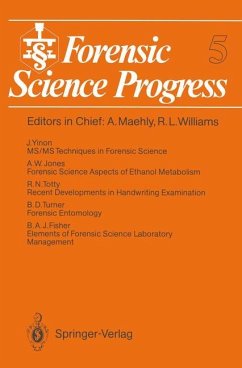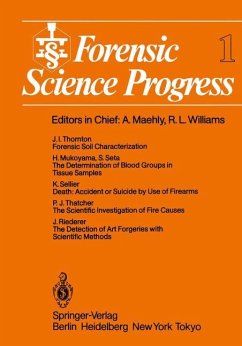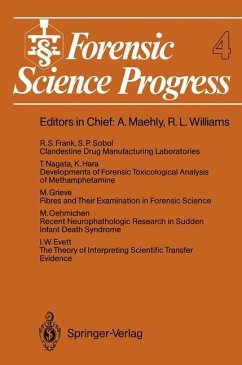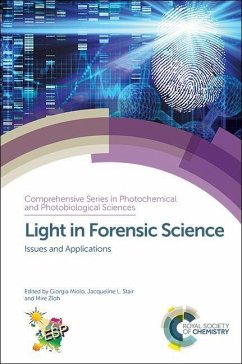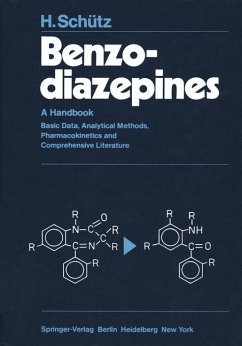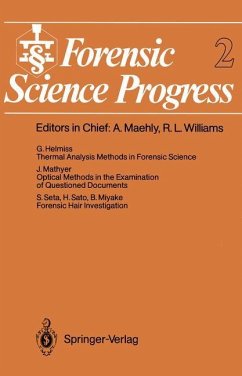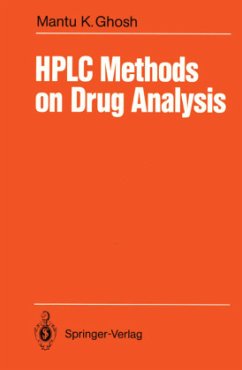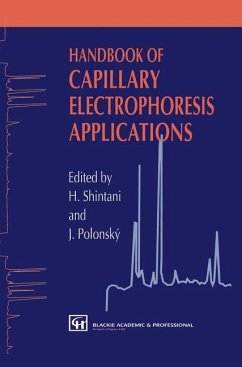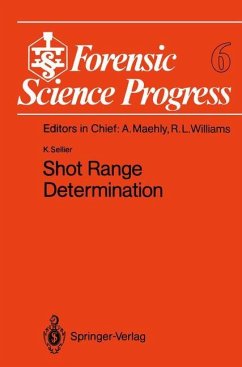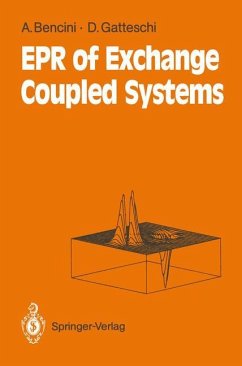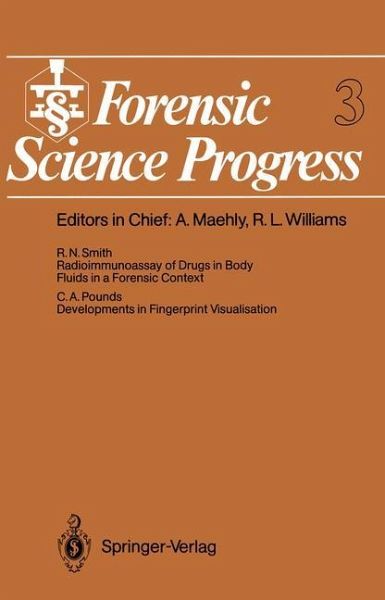
Forensic Science Progress
Volume 3
Mitarbeit: Pounds, C.A.; Smith, R.N.
Versandkostenfrei!
Versandfertig in 1-2 Wochen
77,99 €
inkl. MwSt.

PAYBACK Punkte
39 °P sammeln!
Competitive binding techniques such as radioimmunoassay (RIA) are widely used to measure an enormous variety of compounds in biological fluids. Current methods have 1 2 arisen from the pioneering work ofYalow and Berson in the U. S. A. and Ekins in the u. K. Much of the early development was concerned with the analysis of protein hormones, and nearly a decade passed before attention focussed also on small molecules such as steroids and drugs. The potential of immunoassay methods for drug monitoring in clinical and forensic laboratories and in addict treatment programmes resulted in the commerc...
Competitive binding techniques such as radioimmunoassay (RIA) are widely used to measure an enormous variety of compounds in biological fluids. Current methods have 1 2 arisen from the pioneering work ofYalow and Berson in the U. S. A. and Ekins in the u. K. Much of the early development was concerned with the analysis of protein hormones, and nearly a decade passed before attention focussed also on small molecules such as steroids and drugs. The potential of immunoassay methods for drug monitoring in clinical and forensic laboratories and in addict treatment programmes resulted in the commercial production of immunoassays for various therapeutic and abused drugs, making the technique available to laboratories lacking the facilities to raise their own antisera and synthesise labelled compounds. However, commercial assays are not only expensive but are restricted in range, and so it is advantageous for a forensic laboratory to have the capability to devise "in-house" immunoassays suited to its particular requirements. This chapter describes the theory and practice of RIA in forensic drug analysis. Much of the theory and some of the practice are applicable to immunoassays in which non isotopic labels are used, but such assays are not described in detail since, to date, the versatility and sensitivity of RIA have made it the immunoassay technique of choice in forensic toxicology. The particular advantages of RIA are its sensitivity and the fact that samples such as haemolysed blood can be assayed with little or no prior preparation.





